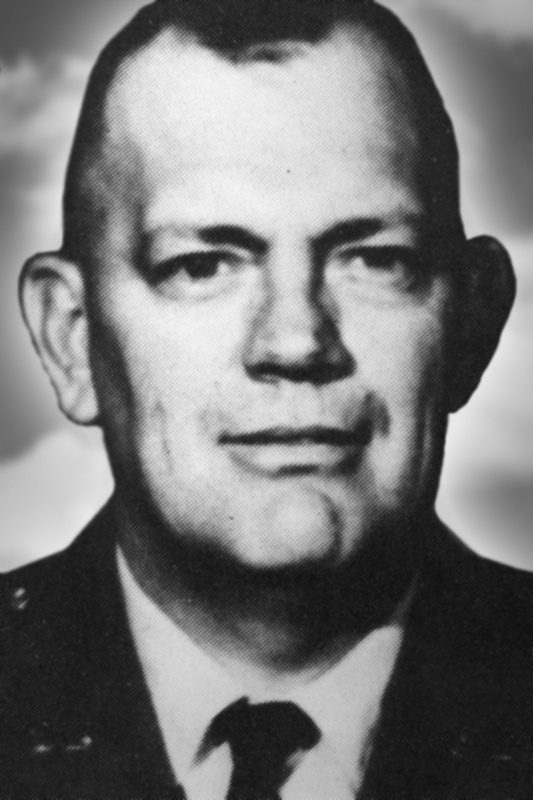Even before becoming the Idaho Territory in 1863 or the 43rd state in 1890, Idaho enjoyed a rich history. From the emerald green hillsides, timbered mountains, and pristine lakes of the panhandle to the open landscape, vast farmlands, and beautiful rivers of the south, Idaho’s history lies with its native tribes, the Lewis and Clark Expedition, and determined pioneers on the Oregon Trail. These same qualities of resilience and courage personify the men and women who serve with the Idaho State Police (ISP).
From The Bureau of Constabulary in 1919 through the creation of ISP in 1939, our dedication to the people of Idaho remains the same – Serve and protect the lives, property, and constitutional rights of people in Idaho. Over the past 84 years, the members of ISP have worked in local communities to aid motorists, educate and enforce traffic safety, investigate crimes, regulate commerce, and support local law enforcement.
Over 700 talented professionals serve the people of Idaho with distinction. Our future stands on the successes of giants who came before us, and we continue striving for excellence and leaving a legacy for those who follow.
ISP serves our communities in many ways beyond our marked patrol cars on the roadways. The Commercial Vehicle Safety Section, the Alcohol Beverage Control Bureau, Idaho POST, Planning, Grants and Research and the Statistical Analysis Center, Forensic Science Services, the Bureau of Criminal Identification, Brand Inspectors, Regional Communications Centers, and the Idaho State Racing Commission all provide vital law enforcement services in cities and towns across Idaho. In addition, the ISP professional IT staff, Human Resources Section, Training Section, and the Finance Services Section help support our people and our mission of service. Through the effort of every ISP member, Idaho families can grow and thrive in safe communities.
ISP is exceptionally proud of our long and distinguished history and believes the dedicated men and women who now serve will carry us forward into the future.
ISP Through the Years
1919
The Bureau of Constabulary was created within the new Department of Law Enforcement (DLE). In addition to “detecting and investigating crime,” the Constabulary was instructed to abate “public nuisances and to enforce such orders by appropriate court action, to suppress riots, prevent affrays, and to prevent wrongs to children and dumb animals, that are inhibited by law.”
Duties:
* Detected and investigated crimes
* Enforced court-ordered actions
* Eliminated pubic nuisances
* Suppressed riots
* Prevented affrays (fighting in public)
* Prevented wrongs to children and animals
* Prohibition
* Mitigated the labor uprising in North Idaho
* Photographs and fingerprints of known criminals
1939
The Idaho State Police is renamed and achieves new status as a law enforcement agency under the Idaho State Police Act.
1947
The Alcohol Control Bureau, known as “Liquor Law Enforcement,” was created.
1969
Legislation established the Peace Officer Standards and Training Council (POST). The first voluntary full-time training academy session began on January 14, 1970.
1974
The 42nd legislature mandated training for all basic peace officers within one year of hire.
1982
The Governor’s Office and the Legislative Auditor established the Police Services Division to consolidate ISP and provide two major areas of responsibilities: criminal investigations and law enforcement-related activities.
1988
The Bureau of Forensic Services is assimilated into the DLE from the Department of Health and Welfare to unite the management of law enforcement support activities with evidence analysis.
1995
The Bureau of Criminal Identification is created to centralize all computer operations (including the Idaho Law Enforcement Telecommunications Systems) in one function, now called the Criminal Justice Information Systems (CJIS) section.
2000
The DLE was reorganized in 1999 and took the name of ISP, carrying on a proud service history since the Bureau of Constabulary in 1919. With a radically different organizational profile, Idaho Code was amended to reflect the new agency.
2005
Idaho joined other states issuing Amber Alerts.
2007-Present
Restructuring continues, driven by economic factors and principles of efficiency and effectiveness. Historically, district offices had separate commanders for Patrol and Investigations programs, but now have one Captain who oversees both programs.
The Fusion Center is established.
The Support Services and Forensics programs, previously headed by separate Majors, are combined into one Police Services program, overseen by a single Major.
Regional Communications Centers reduced from 3 to 2, continuing to provide statewide coverage and necessary redundancy.
ISP’s mission adjusts as COVID spreads throughout Idaho.
ISP Forensic Services begin working on genealogy DNA.
Idaho legislature approves the largest budget in agency history.
Today, ISP has over 700 professionals and operates from the headquarters complex in Meridian, which houses numerous divisions, the main regional communications center, a forensics laboratory, and POST.
Honoring Fallen ISP Heroes

Linda Huff
EOW: June 17, 1998
In solemn remembrance of Linda Huff, who was tragically ambushed and killed by an assailant lying in wait outside the Cour d’Alene District State Police Office. Despite the ambush, Huff displayed remarkable bravery and determination, returning fire and even managing to wound the assailant. In the ensuing gun battle, Huff sustained multiple gunshot wounds but valiantly emptied her service weapon before succumbing to her injuries. Her courage and selflessness in the face of grave danger exemplify the highest ideals of law enforcement service. We honor her memory and sacrifice, forever grateful for her unwavering dedication to protecting others.

Douglas Deen
EOW: August 5, 1979
In memory of Douglas Deen, who tragically lost control of his vehicle while responding to an injury accident on the outskirts of Boise, Idaho. Deen’s unwavering commitment to protecting and serving the community will forever be cherished. His sacrifice serves as a poignant reminder of the inherent dangers faced by law enforcement officers in the line of duty.

Walter Cox
EOW: March 6, 1970
In honor of Walter Cox, who tragically lost his life in a car/train accident north of Post Falls, Idaho. Cox’s dedication to duty and service to the community will always be remembered. His sacrifice serves as a solemn reminder of the risks law enforcement officers face every day to keep our communities safe.

Benjamin Newman
EOW: March 3, 1962
In remembrance of Benjamin Newman, who tragically lost his life in the line of duty while assisting a young couple from Ricks College with their stalled vehicle in a snowdrift. Newman had been tirelessly working around the clock to aid motorists on State Highway 33, which was obstructed by heavy snowdrifts from a severe snowstorm. His selfless dedication to serving the community and ensuring the safety of others serves as an enduring example of bravery and compassion. Though he collapsed and passed away during this act of service, his legacy of kindness and commitment lives on in the hearts of all who honor his memory.

Fontaine Cooper
EOW: November 25, 1935
In honor of Officer Fontain Cooper, who bravely served as a state ‘Traffic Policeman’ under the Bureau of Constabulary. He lost his life in the line of duty while attempting to apprehend a dangerous kidnapping and murder suspect, Douglas Van Vlack, following a high-speed chase. Officer Cooper was shot and killed by the suspect with a .38 automatic pistol. His sacrifice, along with Deputy Sheriff Henry Givens, underscores the risks law enforcement officers face daily. Though this occurred before the official establishment of the ‘Idaho State Police,’ Officer Cooper’s bravery and dedication continue to inspire all who serve.
